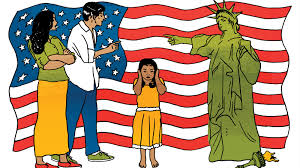Fourth Sunday in Ordinary Time
“Blessed are the poor in spirit, for theirs is the kingdom of heaven.” Mt. 5:2
Really?
The meek and the merciful are “blessed”? The grief-stricken are “comforted”? “Blessed” are the “persecuted”?
How can Jesus say something like this? It’s a reversal of everything we believe: The rich are the truly blessed ones. The powerful are what we all want to be. The attainment of comfort and many goods is what we greatly desire.
What is Jesus talking about?
The answer to that question is simple and direct: Jesus is outlining the Christian “ethic,” the Christian ideal for the way each of us is to live out our lives. And it involves what is often referred to as the “great reversal.”
It’s a belief system that is topsy-turvy, upside down, and a complete turnaround in terms of what the “good life” ultimately looks like.
Let’s begin with Jesus’ announcement about the “poor in spirit.”
Here Jesus addresses all the people who are at the end of the rope in their lives; people who are experiencing a state of utter depression, hopelessness, emotional paralysis. People who feel dead inside. Who feel empty. Who are numb with disillusion.
Jesus has the audacity to tell them they are “blessed”!
How can this possibly be?
Part of the answer lies in the meaning of the scriptural word commonly translated as “blessed.” On a deeper level, it’s a word that means “I am with you, I hear you, I am on your side.”
God is on your side – regardless of how dispirited you feel. God has not forgotten you – regardless of how neglected you feel. God is ever present – regardless of how insignificant you feel.
You count. You matter.
The same is true for those who are meek, who are “clean of heart,” who are “peacemakers.” The same is also true for those who are insulted and persecuted because of their faith.
And there is another reason why Jesus uses the word “blessed” – or “happy,” as it is sometimes translated.
St. Paul urges us today to remember one thing especially: “God chose the lowly and despised of the world … the weak of the world … those who count for nothing.”
Why?
Why not choose those who are powerful and mighty? Why not choose those who can get things done, make things happen?
In a word, the answer to these questions is “powerlessness.”
What Paul means is that “power is at its best in weakness.” Again, he tells us “it is when I am weak that I am strong” (2 Corinthians, 12: 9-10). Here he is speaking from personal experience, of being knocked off his high horse – and only then being able to recognize and follow the Lord.
It took that dramatic “road to Damascus” trauma to get Paul’s attention and make it possible for a whole new life to be born.
The view of Alcoholics Anonymous is similar. AA believes that “unless you bottom out, and come to the limits of your own fuel supply, there is no reason to switch to a higher octane of fuel. True change only happens when you let go and allow God to take over.”
This is why Step One of AA insists on the acceptance of powerlessness, the acceptance of the belief that until I admit that on my own I can’t get well, I must reach out to a Power greater than I. Or, to put it in the words of Fr. Richard Rohr, “Until there is a person, situation, event, idea, conflict, or relationship that I cannot manage, I will never find the True Manager.”
God chooses the persecuted, the “least of these,” precisely because they are empty, vulnerable, open to new possibilities and new beginnings. They’re willing to change. What have they got to lose?
However, change, taking on a whole new mindset, can only begin when we rid ourselves of what Bill Wilson, the founder of Alcoholics Anonymous, called the King Baby Syndrome – referring to our gigantic egos.
Jesus calls us in today’s Sermon on the Mount to do just that – climb down from our own high horses, leave behind all that prevents us from becoming open, and accept a new way of living.
This is admittedly difficult stuff to achieve, very difficult – because it involves “dying before we die.”
And this is also why English poet W.H. Auden believes most people won’t do it. As he puts it:
“We would rather be ruined than changed. We would rather die in our dread than climb the cross of the present and let our illusions die.”
That’s why Jesus believes that it will be easier for the poor, the nobodies, the less than-s, the “poor in spirit,” and the emotionally destitute to go for broke, to follow his way – and to do it with God’s assurance that “I am with you.”
And, that’s also why the meek and the grief-bound and the peacemakers and the “weak of the world” are truly “blessed.”
“Blessed are the poor in spirit, for theirs is the kingdom of heaven.”
Ted Wolgamot, Psy.D.
11809194.1
1/26/17



